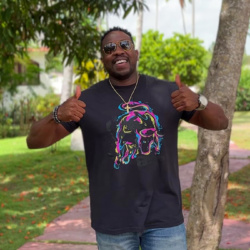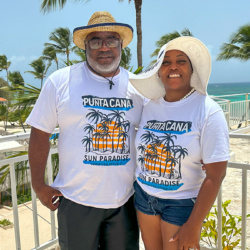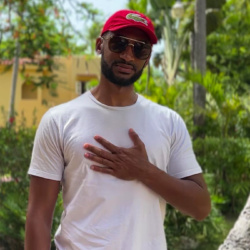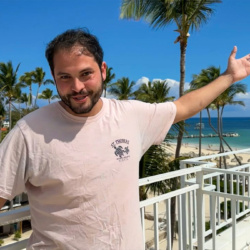Cultural & Historical Tours in Punta Cana
Get in Touch with Our Team!
Show categories
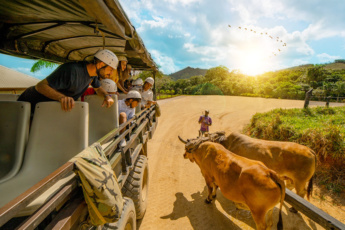
La Hacienda Park – 7-in-1 Adventures Tour in Bávaro, Punta Cana
from $99 View Details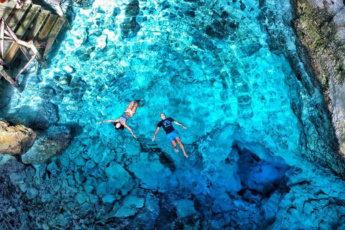
Scape Park in Punta Cana – Full Admission
from $129 View Details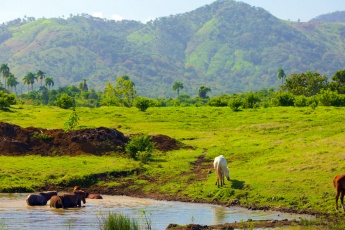
Higüey Cultural & Countryside Private Tour – Basilica of Altagracia, Anamuya River, Macao Beach, Horse Ride & Taino Cave
from $120 View Details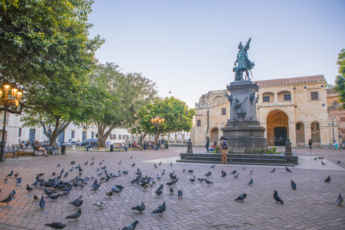
Santo Domingo City Tour – Full-Day Excursion to Colonial Zone & Los Tres Ojos
from $75 View Details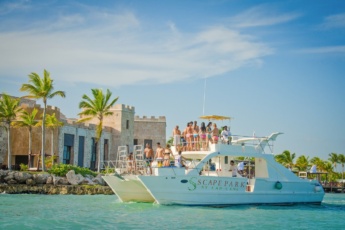
Scape Park in Punta Cana – Full Admission + Sunshine Cruise
from $179 View Details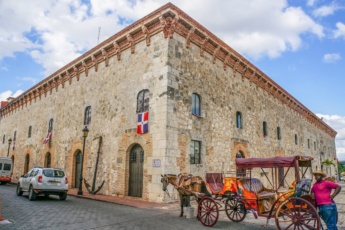
Santo Domingo City Tour 2026 – Safe & Private
from $780 View Details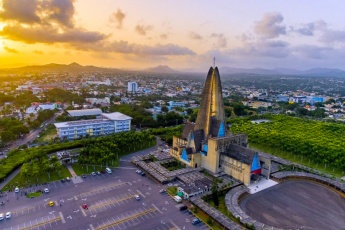
Higüey City Tour The Dominican Republic
from $150 View Details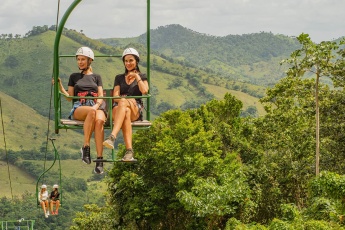
La Hacienda Park – Punta Cana
from $99 View Details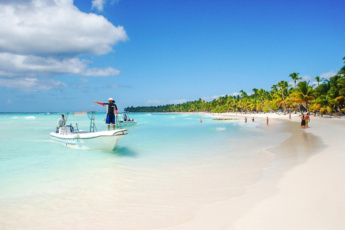
Saona Island and Altos de Chavon 2-in-1 Private Excursion (from Punta Cana)
from $1040 View Details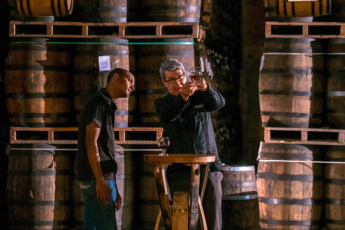
Cigars and Rum Factory Tour from Punta Cana – Ron Barceló and VegaFina Factories
from $375 View Details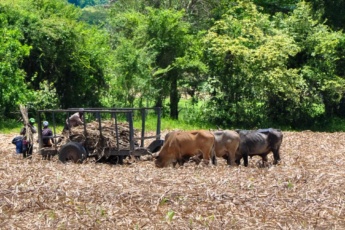
Boca de Yuma. Local Historical Experience
from $124 View Details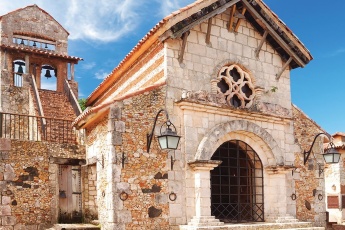
Altos de Chavon VIP Tour The Dominican Republic
from $699 View Details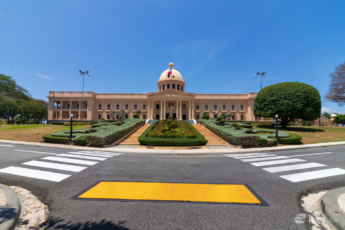
Santo Domingo Tour from Punta Cana – Private Full Day Excursion in the Colonial Zone of Santo Domingo
from $930 View Details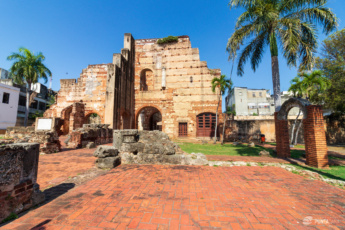
Santo Domingo Full Day VIP Tour from Punta Cana – Zona Colonial, Conquista Park, Los Tres Ojos
from $939 View DetailsGoing on vacation to Punta Cana is always about discovering new opportunities, immersing yourself in the local culture, and learning new and exciting things. Cultural tours in Punta Cana – it’s always a wide choice of where to go, how to spend the day and immerse themselves in lush natural spaces to discover a wealth of cultural treasures.
In Punta Cana, you will find many different entertainment options. Every traveler will find something interesting here!
4 the most famous historical & cultural tours in Punta Cana
After exploring many options, we’ve rounded up the top 4 cultural tours in Punta Cana. Each family member will be able to find something to their taste and return home with pleasant memories and impressions!
1. Excursion to Altos de Chavon
This fascinating location is an authentic recreation of a Mediterranean town from the sixteenth century. Altos de Chavon is situated in La Romana, in the middle of the Dominican countryside. Roberto Coppa, an Italian master designer and filmmaker, created Altos de Chavon with meticulous attention to detail. Then, each component was created by regional craftspeople.
This town is a social hub for international travelers, residents, and working artists. For artists, there are several studios available, from weaving to ceramics. In the Dominican Republic, this hamlet is renowned for being a great site to study photography. There is an art gallery nearby that features works by well-known Dominican painters and many other international artists.
This area also houses the Altos de Chavón School of Design. The Parsons School of Design in New York is connected to this institution. Visit the Church of St. Stanislaus, the 5,000-seat amphitheater, the magnificent archaeological museum, and take in the breathtaking views of the Chavon River and the Caribbean Sea.
The greatest entertainment is available in Punta Cana for all preferences. We urge you to leave the luxury of your hotel and discover the Dominican Republic’s incredible charm, distinctive landscapes, geography, and friendly people. Discover a lot of fresh causes to like this well-liked tourist spot.
2. Higüey guided safari tour
During this cultural tour from Punta Cana, you will explore more of the Dominican Republic. During the Higüey excursion, you will drive a safari vehicle through reed fields before arriving at a small school to interact with local kids. You will also go to the Basilica of Our Lady of Altagracia, one of the most well-known churches.
Two remote ranches will be visited on the trip route so that you may observe how native Dominican goods like cocoa, tobacco, and coffee are made. After that, you’ll have a fantastic lunch prepared in the Dominican Republic and some free time to unwind on the beach.
3. Cultural tour to Santo Domingo
During the private trip to Santo Domingo, you will be carried away by the most exciting story of a professional guide about the history of the discovery of a new world and the life of pirates in the Caribbean region, and you will also learn a lot of interesting things about the Dominican Republic.
The first stop will be the famous Los Tres Ojos cave, where you will see the most beautiful lakes with crystal clear water. Next, you will go to the colonial part of the city. You will walk along the first street of the new world, “Las Damas” and Columbus Square, visiting various historical places, such as the Casas Reales Museum, the House of Diego Columbus (son of Christopher Columbus), the Pantheon of the Fatherland and the first temple of the New World.
The final point of the journey will be the Columbus Lighthouse, the place where the chest with the ashes of Christopher Columbus is kept. You will not only look at this monumental building, made in the form of a Catholic cross, but you will also be able to go inside and walk through the expositions of different countries participating in the construction of the Columbus Lighthouse.
A delicious Dominican lunch awaits you at an exclusive restaurant in the historical part of the city.
4. 7-in-1 tour at La Hacienda Park
La Hacienda is a private farm where you will go step by step:
Exciting buggies
An unforgettable adventure in the wilderness behind the wheel of a buggy, on a specially designed route for driving in the most extreme conditions. Descents and ascents, mud and puddles, this is very dirty, but very fun pastime. During the trip, a stop is provided at the Anamuya River with crystal clear water, where visitors can cool off, swim, and wash off the mud! We advise everyone. (Don’t forget to bring a swimsuit or a change of clothes)
Horseback riding
Explore the wilderness of Anamuya on the best horses of the Dominican Republic. The Spanish Quarter and Appaloosa horses live on the ranch in excellent conditions and are carefully looked after daily. A horse will be prepared for each guest – don’t worry, experienced riders and guides will always be there.
Safari in a military track
During this cultural tour in Punta Cana, you will have a fascinating journey through the Dominican outback on a real military truck. During the trip, you will visit cocoa, coffee, and sugar cane plantations; a Dominican village where you can see the lifestyle of residents, their homes and their way of life.
The farm also has pets that you can feed and take photos.
Zipline adventures
5 stunning zipline routes involve crossing two peaks and a picturesque mountain clearing. You will have the opportunity to experience the longest route in the Caribbean – over one kilometer and a flight altitude of over 200 meters. It is also one of the fastest descents on the island, they can accelerate to 70 km/h.
At the end of the fifth zipline route, guests have the choice of the last descent – either a fast jump with insurance from a height of 20 meters or there is the option of going down the usual stairs.
Distinctive chairlift
It is unique in the country. The first lift in the Dominican Republic allows visitors to move from the base to the top of the mountain and enjoy unforgettable views of the wildlife of Anamuya and the Caribbean Sea. Also, on the lift, you can descend or start a trip on a zipline. It’s wonderful!
Delicious Dominican lunch
At the end of all the adventures, you will taste the exclusive Dominican cuisine: pumpkin cream soup, typical Dominican sancocho meat soup, fish in coconut sauce or rice with milk, various types of meat, salads, fresh vegetables and fruits. All dishes are prepared according to the best local recipes from natural local products.
Frequently asked questions about historical
& cultural tours in Punta Cana
1. What is the culture like in Punta Cana?
The culture in Punta Cana is a vibrant blend of influences, shaped by the rich history and diverse heritage of the Dominican Republic. Here are some key aspects:
- The culture of Punta Cana is profoundly established within the conventions and traditions of the Dominican Republic. The nation contains a blend of innate Taíno, African, and European (basically Spanish) impacts, all contributing to its one-of-a-kind social embroidered artwork.
- Music and movement play a noteworthy part. Merengue and bachata are two well-known music classes that begun in the Dominican Republic, and you’ll frequently listen to their infectious rhythms and tunes within the nearby clubs, eateries, and, indeed on the shorelines. Local people and guests alike appreciate moving to these exuberant beats.
- Punta Cana celebrates different celebrations and social occasions all throughout the year. One of the foremost noteworthy celebrations is the Dominican Republic’s Autonomy Day on February 27th, commemorating the country’s freedom from Haitian run show in 1844. The merriments incorporate parades, music, conventional moves, and firecrackers.
- The neighborhood cooking in Punta Cana reflects the flavors and fixings of the Dominican Republic. You’ll savor dishes such as sancocho (a healthy stew), mofongo (squashed plantains with meat or fish), tostones (browned plantains), and new fish arranged in an assortment of styles. Do not miss attempting the national dish, la bandera, which regularly comprises rice, beans, meat, and a serving of mixed greens.
- The Dominican Republic contains a wealthy imaginative legacy, and Punta Cana showcases this through its nearby craftsmanship scene. You’ll be able to investigate craftsmanship exhibitions, make markets, and shops that offer a wide extent of conventional makes, counting handcrafted adornments, earthenware, depictions, and woven merchandise.
- Dominicans are known for their warm and inviting nature, and this neighborliness is predominant in Punta Cana. Guests can anticipate coming across inviting local people who take pride in sharing their culture and conventions with others.
Punta Cana’s culture is more different than as it were these components since the range invites impacts from its remote sightseers and occupants. The mix of territorial traditions and world impacts in Punta Cana produces a dynamic and inviting social environment.
2. What is something interesting about Dominican Republic culture?
The energetic music and movement scene within the Dominican Republic is an exciting include of that country’s culture. Prevalent music classes like merengue and bachata, which are well-known internationally, were born within the country. Merengue is respected as the national move of the Dominican Republic due to its cheery rhythms and energetic move schedules.
You can learn more about the Dominican Republic by traveling around it a little. The best way is Punta Cana cultural tours, which offer many trips around the country.
3. What are 3 cultural facts about the Dominican Republic?
Many facts can be cited about the culture of the Dominican Republic, but here are the most interesting three of them in our opinion:
- Music and dance are integral to Dominican culture. The country is known for lively genres like merengue and bachata, accompanied by energetic dance moves.
- Baseball is the foremost well-known sport in the Dominican Republic. Dominicans have a profound energy for amusement, creating numerous gifted players who exceed Major Association Baseball (MLB) expectations.
- Carnival may be a critical social occasion within the Dominican Republic, celebrated with colorful parades, music, move, and expanded outfits. It grandstands neighborhood conventions and fables, and makes a dynamic and merry environment.
These three facts highlight some distinctive elements that contribute to the dynamic and rich cultural tapestry of the Dominican Republic.
4. What things are part of Dominican culture?
Solid family and community ties, happy celebrations, warm neighborliness, merengue and bachata moving, luscious cooking, exuberant craftsmanship and makes Catholic devout ceremonies, a adore of baseball, and more are all perspectives of Dominican culture.
5. How do Dominicans celebrate their culture?
Dominicans celebrate their culture through various means. Here are some ways they celebrate their vibrant heritage:
- Festivals and carnivals;
- Music and dance;
- Traditional cuisine;
- Religious celebrations;
- Art and crafts;
- Community gatherings;
- Sporting events;
- National holidays.
6. What is the food of the Dominican Republic culture?
The food of Dominican Republic culture is a delicious fusion of flavors influenced by African, European (mainly Spanish), and Indigenous Taíno culinary traditions. Here are some key dishes that represent Dominican cuisine:
- La Bandera;
- Sancocho;
- Mofongo;
- Tostones;
- Mangú;
- Chicharrón;
- Empanadas;
- Dulce de leche.
On most cultural tours from Punta Cana, you will be treated to traditional Dominican food. You can also take a look at the 29 restaurants and cafes in the region, which offer a wide range of both traditional Dominican dishes and dishes from other countries. For more on Dominican cuisine and dishes, see our article on 11 dishes you must try in the Dominican Republic.
7. What is the Dominican tradition?
Benefactor holy person celebrations, energetic carnival celebrations, family and community values, music and move, love for precursors, and conventional creates are as it were, some illustrations of Dominican conventions.
8. What are some cultural tourism areas in the Dominican Republic?
The Dominican Republic offers several cultural tourism areas that provide opportunities to explore its rich heritage and traditions. Here are some notable ones:
- Santo Domingo. Explore the UNESCO-listed Colonial Zone with its historic buildings and landmarks.
- Altos de Chavón. Visit the replica Mediterranean village near La Romana, featuring artisan workshops and an amphitheater.
- Puerto Plata. Discover the Victorian architecture and the Amber Museum in this coastal city.
- Carnivals. Experience the vibrant and colorful carnival celebrations in La Vega, Punta Cana & Santo Domingo.
- Samaná Peninsula. Enjoy the natural beauty and immerse yourself in the local culture through art and culinary experiences.
- Barahona. Discover breathtaking landscapes and engage with local communities and artisans.
Each region of the country has its own unique cultural attractions, allowing visitors to explore and appreciate the diverse heritage and traditions that make the Dominican Republic a fascinating destination!
9. What is a historical site in the Dominican Republic?
One of the Dominican Republic’s eminent chronicled points of interest is the “Alcázar de Colón” (Columbus Alcazar), which is found in Santo Domingo’s Colonial Zone. Diego Columbus initially built the Alcázar de Colón, a UNESCO World Legacy location, as his home in the early 16th century. It is considered one of the oldest viceregal structures within the Americas.
The Alcázar de Colón combines engineering highlights from the Gothic and Renaissance times. It contains a exhibition hall with collectible furniture, craftsmanship, and artifacts from the colonial period on show.
The Alcázar de Colón, a striking authentic location, gives guests with a see into the country’s colonial past and gives a accommodating point of view on Christopher Columbus’ bequest and affect on the Modern World.




